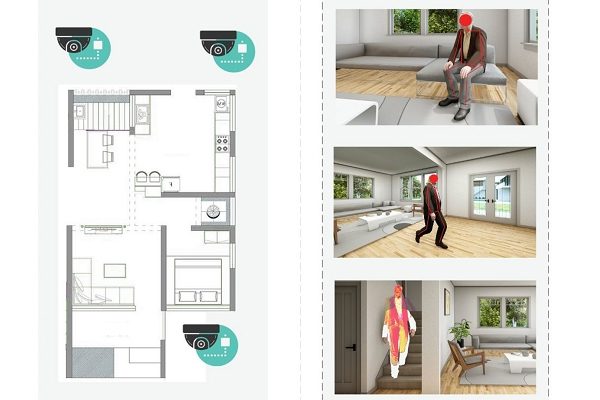NSF grant funding to support health monitoring system for elderly

A pair of interdisciplinary researchers from architecture and engineering recently received a grant from the National Science Foundation to use artificial intelligence to improve health care among the elderly.
The funding of $255,992 is through a Small Business Technology Transfer Phase I grant, designed to assist researchers transform scientific discoveries into commercial products.
Mona Azarbayjani, associate professor of architecture, and Hamed Tabkhi, assistant professor of electrical and computer engineering, are collaborating on the project, “Camera-Based Multimodal AI for Health Monitoring.” Their goal is to use cutting-edge technology to improve the care of older people in both home and institutional environments.
Mohammadreza Baharani, an engineering postdoctoral fellow, and Ph.D. candidate Roshanak Ashrafi also are members of this research team whose investigations with several of the University’s areas of research excellence: cybersecurity and artificial intelligence, smart and sustainable cities and urban health.
According to census data, in the next decade one of every five Americans will be 65 or older, and by 2034, the elderly will outnumber children for the first time in census history. At the same time, the number of health care workers is dwindling – particularly home health aides and nursing home attendants, and the industry is experiencing a dire shortage.
According to the researchers, their remote patient monitoring project will enable holistic, accurate and faster monitoring of elderly people that will improve their quality of life and health; address the future nursing shortage, particularly in the geriatric field; and reduce health care costs.
Azarbayjani and Tabkhi both work in the interdisciplinary Infrastructures and Environmental Systems (INES) program. They began their partnership three years ago with research into “smart building” technology that can monitor occupants’ body temperatures from a distance, without the need for direct person-to-person contact.
Read more on the College of Arts + Architecture website.